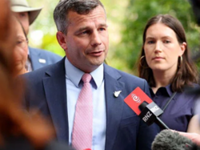NEW YORK: The US$2bil (RM9.2bil) market for carbon offsets is heading for a massive reset, as a growing number of sovereign governments announce their intention to tax, regulate or restrict trade in credits generated within their borders.
The details vary, but from Indonesia to Kenya to Honduras, the goals are the same: governments want to retain more of the benefits of emissions reduction projects, whether as revenue or as credit towards their own national climate goals.





